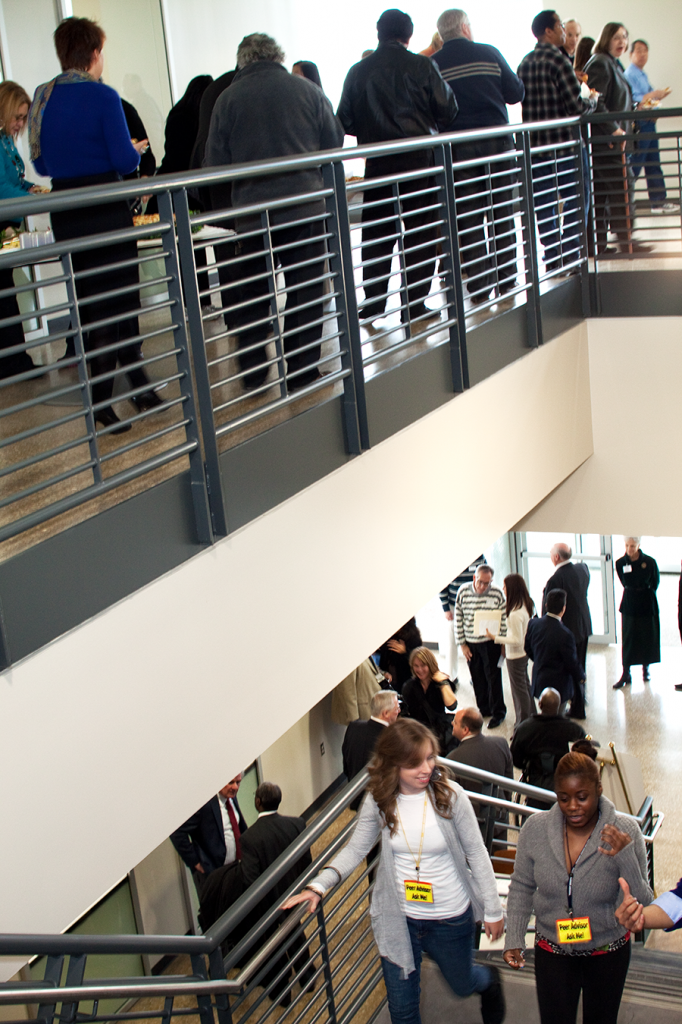By Marley Malenfant/feature editor
On a hot summer day in August, SE history associate professor Heard Floore drove to the airport.
For years, he had dealt with students and raised kids of his own. On that day, Floore picked up a 17-year-old foreign-exchange student from Moldova.
Floore has taken in high schoolers from different countries between ages 15-17 through the Future Leaders Exchange Program for two years.
FLEX allows students from Armenia, Azerbaijan, Georgia, Kazakhstan, Kyrgyzstan, Moldova, Russia, Tajikistan, Turkmenistan and Ukraine to live in the U.S. for a year with a family.
The student living with Floore is Nicolae Cotoman, a high school junior who speaks at least four languages.
Floore said doing this is something he’s planned for a while.
“I’ve always been interested in people,” he said. “When I was married, this is something I would have loved to have done when my kids were home. But my wife was always fearful of letting strangers in the house.”
Floore said he got a phone call and was asked if he was interested in the FLEX program. Floore said that the students have a set of rules that they must agree to before they’re sent to the U.S. Cotoman can’t have piercings, tattoos, alcohol, sex or drugs and can’t drive a car. Floore said he is allowed to date, though.
“The girls find him fascinating because of his accent,” he said.
Floore said he raises Cotoman like his own children but said he isn’t too strict.
“I’ve learned that the children come with their own agenda, so I quit having goals since then,” he said.
Cotoman still struggles adjusting to the American lifestyle, Floore said. Because Moldova is eight hours ahead of the U.S., he said it’s hard getting Cotoman up in time for school.
“He doesn’t eat breakfast, so by the time it’s lunch, he’s ready to eat the building,” he said.
Moldova is a mostly poor agricultural country. When Floore picked Cotoman up from the airport, the boy would say “wow” to every sports car he would see on the road.
“Very few people have cars in Moldova,” he said. “He walks to school. He enjoys walking. He says, ‘It’s nothing.’”
Cotoman said he enjoys swimming and competes on his high school swim team. He practiced in a river in his country where people would swim during the summer, but the river would freeze during the winter. When he arrived in America, he said the swim team was the first sport he was interested in.
Cotoman, who used to considered himself a novice swimmer, was asked to compete in the 500 meters, a long-distance race, when one of his teammates got sick.
“This guy on the team didn’t feel good, so I asked coach if I could go since the guy was trembling, and he said, ‘Go for it,’” he said. “Only me and the captain can swim the 500 now.”
Cotoman created a Facebook account when he came to America and said he frequently talks to his friends and family in Moldova as well as his friends in school. He started out with 50 Facebook friends but has since reached 600. It’s easier to meet people here than in Moldova, he said.

Casey Holder/The Collegian
“All the kids are together in Moldova,” he said. “Here, you get to know more people. Every class, it’s new people.”
Floore said others wouldn’t want the kid to be their personal chef.
“He doesn’t like to cook,” he said. “In Moldova, cooking is considered woman’s work. Things are defined by gender over there.”
Cotoman wants his classmates to learn about Moldova. He gives several presentations about his country because he said most students don’t know where it is.
“I’ve met five people who know about my country,” he said. “The reaction is really funny when I ask them that.”
Cotoman will go back to his country in the summer. He said his year’s experience is like taking a piece of America with him.
“People don’t understand how good people got it here,” he said. “Some people got to go two or three miles for a shower. People are very blessed in this country.”

























